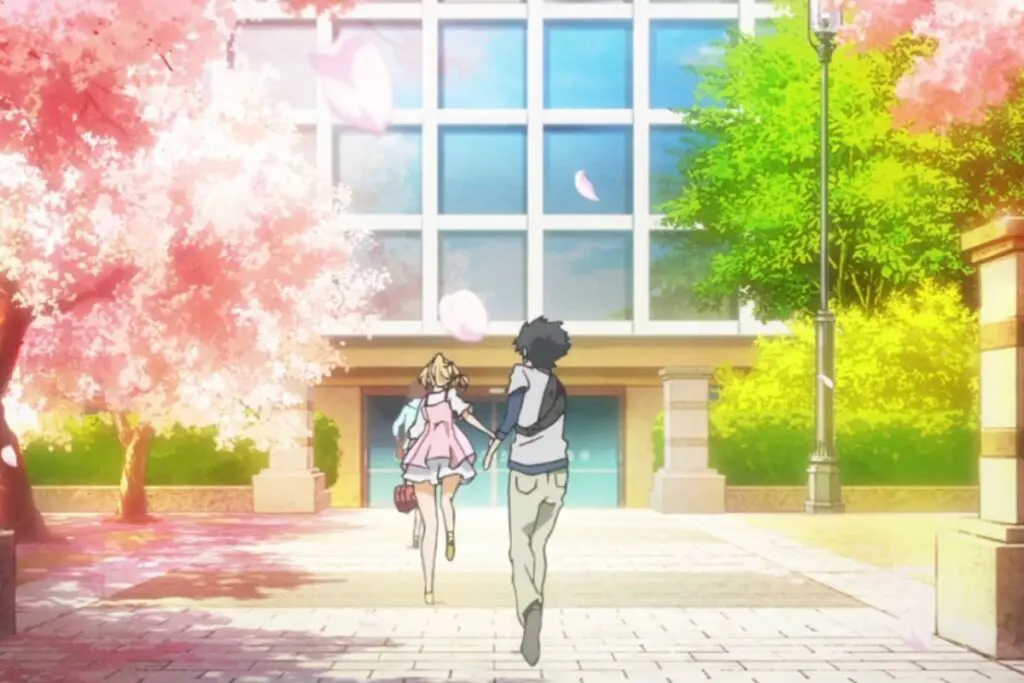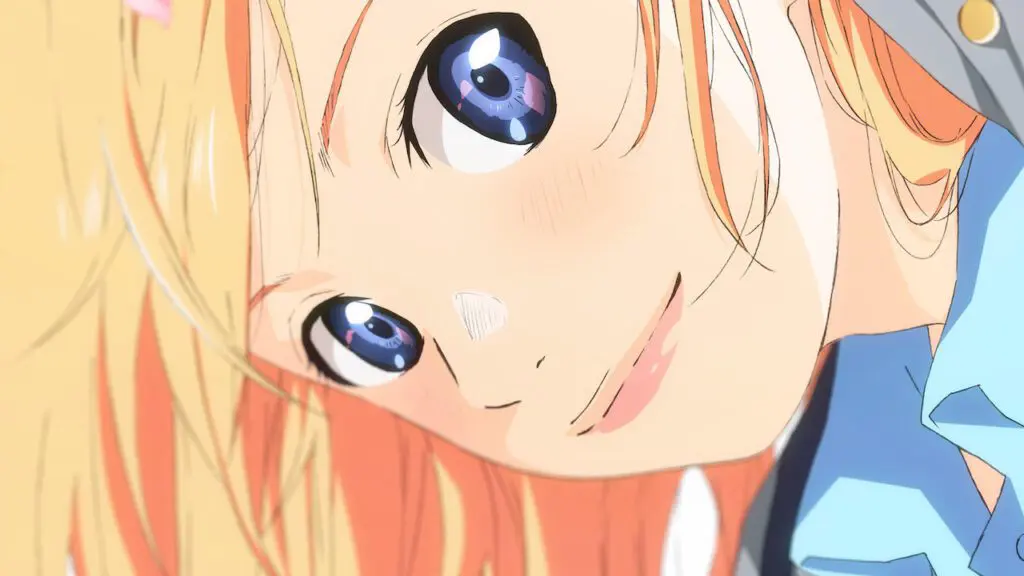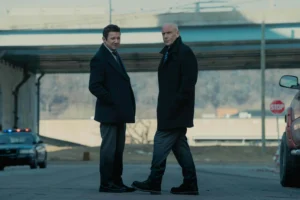Summary
Your Lie in April is an experience that’s difficult to classify, but while your mileage may vary, there’s something to be said for the pleasant experience of watching it.
This review of Your Lie in April Season 1 is spoiler-free.
Further proving that HBO Max are being savvy in their choice of anime content, Your Lie in April makes for a noticeably different experience from either 91 Days or Blue Exorcist, both added at the same time and both, in their own ways, atypical as well. But this light – but not too light – younger-skewing dramedy adapted from Naoshi Arakawa’s popular manga series has a very different feel nonetheless; a warm sentimentality only exacerbated by its soft watercolour aesthetic.
The themes being unpacked here are of the high-school variety, but Kosei, Tsubaki, and Watari, some of the first characters we meet, have bigger fish to fry that the usual school-age matters of crushes and studying for tests and suchlike. The spectre of both loss and trauma loom over Kosei, a piano prodigy who hasn’t played since the death of his abusive mother two years prior. Between him and Kaori, another classical musician, Your Lie in April has a relationship bonded and in some sense defined by the transporting beauty and power of music.

This idea is reflected everywhere in how the show embraces the extremes of emotion and tone that is typical of one’s teenage years and emblematic of how music can stir up sentimentality, melancholy, or optimism. Because the show operates in this way, it’s difficult to pin down, both in terms of its genre and who might get the most from it. The protagonist is male but nonviolent and un-superpowered; the narrative is lightly romantic and often funny, but explicitly concerned with a deep-rooted sense of trauma and psychological turmoil; its aesthetic is pretty and painterly but belies a darker interior. And so on, and so forth.
Often we lament a show pandering too explicitly to a particular demographic, so that’s a point in the favour of Your Lie in April, but it can also make the show feel as though it doesn’t quite know what it wants to be. This isn’t such a bad thing, but it is an intermittently noticeable one, and it might be annoying for someone who likes a more focused narrative and tone. I think, though, that this is part of the show’s inherent musicality, how it can stir a range of emotions and navigate different territories with subtle shifts and deft instrumentation. The show didn’t grab me and hold me as I suspected it might, but it is pleasant, all the same.




